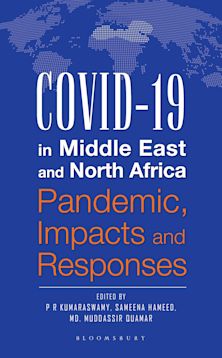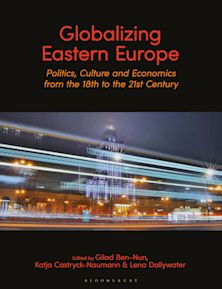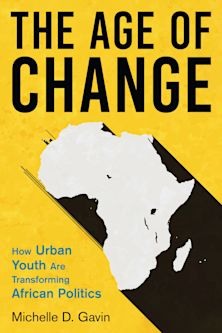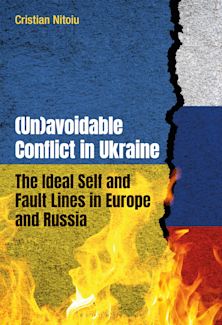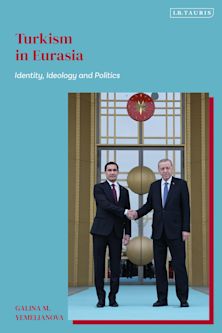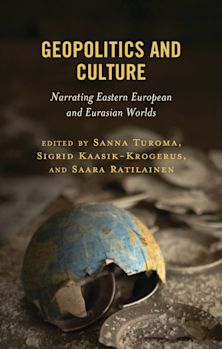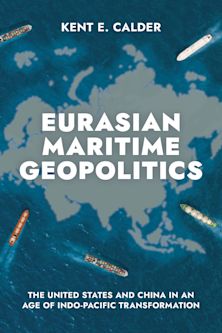- Home
- ACADEMIC
- Politics & International Relations
- Geopolitics
- Central Europe Thirty Years after the Fall of Communism
Central Europe Thirty Years after the Fall of Communism
A Return to the Margin?
Central Europe Thirty Years after the Fall of Communism
A Return to the Margin?
This product is usually dispatched within 1 week
- Delivery and returns info
-
Free CA delivery on orders $40 or over
You must sign in to add this item to your wishlist. Please sign in or create an account
Description
This book examines the politics and international relations of Central Europe (the Visegrád Four) three decades after the fall of communism. Once bound together by a common geopolitical vision of "returning to the West," the Czech Republic, Hungary, Poland, and Slovakia now find themselves in a more ambiguous position. The 2015 European migration crisis exposed serious normative differences with Western Europe, leading to a collective V4 rebellion against the European Union's migration policies. At the same time, as this book demonstrates—despite this normative rift with Western Europe and despite the democratic backsliding in some of the V4 states—they remain deeply dependent on the West in both symbolic and material terms. Furthermore, ways in which individual Central European states position themselves vis-a-vis the West exhibit notable differences, informed by their specific political and cultural legacies. The author examines these in separate country chapters. This book also contains a chapter that analyzes the effect of the COVID-19 crisis on political discourses in the V4.
Table of Contents
Introduction
Chapter 1: Central Europe as a Counter-Hegemonic Concept
Chapter 2: “The End of Central Europe?” The European Migration Crisis and the Contestation of Identities in the Visegrád Four
Chapter 3: An ad hoc Region: On Central Europe’s Embedded Revisionism
Chapter 4: Czech Republic and Slovakia: The Post-Crisis Core-Periphery Debate
Chapter 5: Poland: Heroic Failures and Tragic Resistance
Chapter 6: Hungary: The Freedom Fight of an Ideological Entrepreneur
Chapter 7: The Pandemic is What the Populists make of it? The Virus Signifier and Identity Politics in the Visegrád Four
Conclusion: Did the Return to Europe Become a Return to the Margin?
References
About the Author
Product details
| Published | Jun 21 2022 |
|---|---|
| Format | Hardback |
| Edition | 1st |
| Extent | 226 |
| ISBN | 9781498599610 |
| Imprint | Lexington Books |
| Illustrations | 2 b/w photos; 2 tables; |
| Dimensions | 228 x 158 mm |
| Publisher | Bloomsbury Publishing |
About the contributors
Reviews
-
Aliaksei Kazharski’s new book is a good read for both area studies specialists and those interested in theories of politics and international relations. It nicely connects the insider’s perspective on Central Europe as a subregion within the EU and NATO with insightful conceptualizations of key analytical categories that are indispensable for studying foreign and security policies in a broader context.
Journal of Contemporary European Studies
-
What is the meaning of the idea of 'Central Europe' in the twenty-first century? How have European crises of the last two decades transformed this meaning? How important is post-communist trajectory of the 'Visegrad Four' in understanding the political future of the EU? These are only some of the questions that Aliaksei Kazharski discusses in his important and provocative book.
Ivan Krastev, Chairman, Center for Liberal Studies, Sofia
-
This outstanding book does a masterful job explaining the complexities of domestic political change and regional cooperation among the four Visegrad countries of Central Europe. For scholars of comparative politics and international relations, Kazharski offers deep insights into the political dynamics that have brought Poland, Hungary, the Czech Republic, and Slovakia into the political and economic heart of Europe—and over the last decade have put them on different trajectories that are sometimes in tension with liberal democratic values and the European Union.
Milada Anna Vachudova, UNC Chapel Hill
-
This is a well-written and well-argued book, which offers both a theoretically informed and empirically rich analysis. It is important not only because it enriches our understanding of Central Europe. Crucially, it brings nuances and complexity to the frequently oversimplified picture of the region. Aliaksei Kazharski’s work will thus be of great interest to both students and academics, but also anyone interested in Central Europe and Europe.
Eurasian Geography and Economics
-
The volume is a valuable contribution, providing a well-structured in-depth analysis of Central Europe’s complexity and its intricate relationships with other European countries. The author’s claims are supported by relevant sources. As an introduction to politics and international relations in the region, the book offers comprehensive coverage and will be a useful resource for both area studies specialists and those seeking a deeper understanding of Central Europe. [Overall,] the book has the potential to inspire an intriguing discourse on Central European identity and the consequences of current political and international conduct, especially in light of the ongoing war in Ukraine. Scholars should closely monitor developments in the region and their potential effects on regional stability.
Europe-Asia Studies

ONLINE RESOURCES
Bloomsbury Collections
This book is available on Bloomsbury Collections where your library has access.















